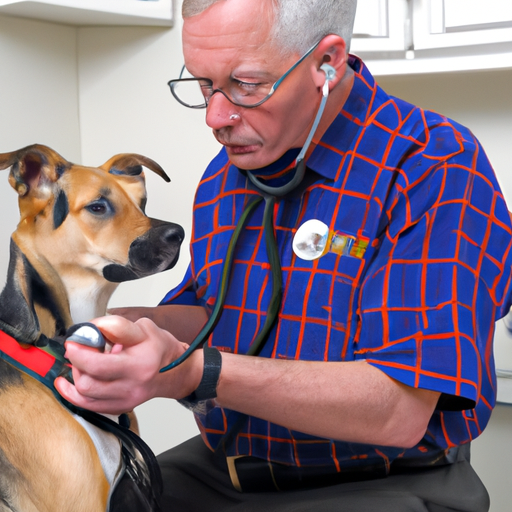“`markdown
How to Check Your Dog’s Heart Rate
Being a caregiver for your furry friend is a rewarding experience. However, it also comes with its set of challenges. One such challenge that you might face is monitoring your dog’s heart rate. This guide will walk you through the process with a compassionate, caregiver’s understanding.
Why is it Important to Check Your Dog’s Heart Rate?
As a caregiver, you naturally want the best for your pet. Part of that involves monitoring their health regularly. The heart rate of your dog is one such vital sign that can provide valuable insights into their overall well-being.
- A high or low heart rate could indicate health issues.
- Regular checks can help detect problems early.
- It can provide your vet with useful information during check-ups.
How to Find Your Dog’s Pulse?
Finding your dog’s pulse is the first step towards checking their heart rate.
- Place your hand on the left side of your dog’s chest.
- If this doesn’t work, try finding the femoral artery located on the inside of the hind leg.
- Another option is to check the pulse on the dog’s paw pad.
What is a Normal Heart Rate for Dogs?
Different dogs have different normal heart rates. The following table gives a general idea:
| Size of the Dog | Normal Heart Rate (beats per minute) |
|---|---|
| Small dog | 90-120 |
| Medium dog | 70-110 |
| Large dog | 60-100 |
Remember, these are average ranges. Consult your vet if your dog’s heart rate falls outside these ranges.
How to Monitor Your Dog’s Heart Rate?
After finding the pulse, you need to count the beats.
- Use a stopwatch or your phone’s timer.
- Count the beats for 15 seconds.
- Multiply the number by four to get the beats per minute.
What to Do If Your Dog’s Heart Rate is Abnormal?
If your dog’s heart rate is too high or too low, don’t panic.
- Keep your dog calm.
- Contact your vet immediately.
- Provide them with as much information as possible.
Frequently Asked Questions
Q1: How often should I check my dog’s heart rate?
A1: It’s good to check it once a month. However, if your dog has health issues, you may need to check it more frequently.
Q2: My dog is nervous and his heart rate is high. Should I be worried?
A2: Dogs’ heart rates can increase due to stress or excitement. If it doesn’t settle after they calm down, contact your vet.
Q3: My vet’s heart rate count and mine are different. Why?
A3: Vets are experienced in finding and counting pulses. But don’t worry, with practice, you’ll get better.
Remember, you are doing a great job as a caregiver. Keep loving and looking after your furry friend. They are lucky to have you.
“`



